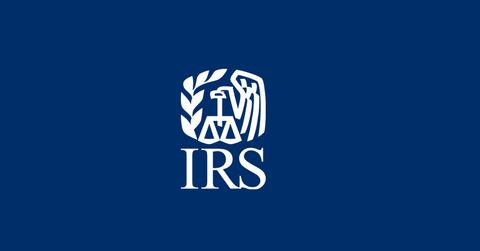How To Avoid IRS Tax Refund Delays
After filing their taxes, many people expect some money back. Why is it taking so long to get the tax refund?
Sept. 9 2021, Published 7:02 a.m. ET

Many people count on IRS tax refunds to pay bills to safeguard their credit score. Others may want to invest their refund in stocks or cryptocurrencies, or just put it in a retirement savings account. Why is it taking so long for some people to get their tax refund?
Do you qualify for a tax refund?
For many people, filing for a tax refund is a yearly routine, and they budget according to the amount they expect. Qualifying for a refund means you overpaid income tax. For the employed, this may happen when more money is deducted from their paycheck for tax than necessary. For the self-employed, overpayment arises when the estimated tax they paid exceeds their actual tax liability. Most tax returns result in refunds, and the average amount in recent years has been around $3,000.

When do you receive a tax refund?
For tax returns filed online, refunds are usually issued within 21 days of the filing date. For paper returns, refunds may take up to six weeks. You can file your tax returns in January, but the IRS deadline is usually Apr.17. The IRS made an exception for the 2020 tax year because of the COVID-19 pandemic, extending the deadline for filing to May 17.
Why is it taking so long to get my tax refund?
Tax refunds may be delayed for several reasons. An incorrect or incomplete return may result in the refund coming late. Certain claims, such as child tax credit and earned income tax credit, can take more time to process. Your refund may also be late if it's been affected by fraud. If this is the case, the IRS may contact you.
The delay may also be due to the IRS being overwhelmed—because of the pandemic, some IRS staff are working remotely. Paper returns can complicate the situation further, creating more delays.
How to check tax refund status
You can avoid tax refund delays by filing your return online and checking it thoroughly for mistakes before submission. Make sure to check your mail regularly in case the IRS has contacted you for additional information regarding your return.
If you’re growing impatient, you can track your refund's progress. The IRS launched a tool, "Where’s My Refund," to help people monitor their refund status. You can access the tool on the IRS website or through its IRS2Go mobile app.
To check your refund status with the tool, you’ll need to enter details such as your expected refund amount, filing status, taxpayer identification number, and social security number.
When you use the tool to track your refund status, you can expect any of these three messages: "Return Received," "Refund Approved," or "Refund Sent." The latter indicates your refund is on its way to your account.
